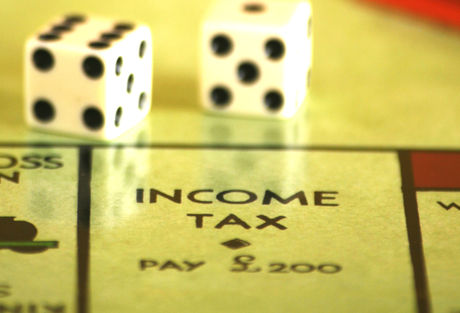Published: 6th April 2018
When it comes to deciding where to invest your money, bricks and mortar is still a popular choice. However, it is not a simple process, as there are many taxes that will impact on your purchase and your profits. So what are they and how will they affect you?
Property can provide a regular income for many, complete with the promise of a capital growth profit when the time comes to sell up. Whilst the tax changes that have taken place over the last 12 months have undoubtedly affected what can be earned, this does not mean that there is no money to be made in property.
Capital Gains Tax is applied to the profit you make when you sell and asset that has increased in value. It is the gain that is taxed, not the entire value so you need to ensure that profits forecasts take this into account.
The first £11,300 of profit that you receive is free, so it is the subsequent amount that is taxable. The tax that is paid will depend on whether you are a basic rate or higher rate taxpayer. Basic rate taxpayers are those who earn less than £45,000 per year, and as a result they are only required to pay 18% However, if your profits take you above the £45,000 threshold you will then be expected to pay the higher rate of tax on the amount that exceeds this limit.
Higher rate taxpayers earn in excess of £45,000 are expected to pay 28% Capital Gains Tax on any profits they make.
Owning a property jointly with a partner means that you will receive a second exemption of £11,300, but obviously your partner will probably expect to split the profits with you. If you sell a property that is owned by a limited company, you will be expected to pay the 19% Corporation Tax instead of Capital Gains Tax, and there is likely to be a dividend tax to pay when you release this profit from the company.
It is also possible to reduce your Capital Gains Tax bill by using your pension. By making a personal pension contribution in the same year as the sale of your property you can increase the threshold to the higher tax bracket by that amount, which means more of your profit will fall into the lower tax rate. Of course it is important to remember that pension contributions do have an annual cap of £40,000.
Stamp Duty is a tax that is paid on any property bought in England or Northern Ireland that costs in excess of £125,000. The amount of Stamp Duty that you are required to pay is dependent on the value of the property and whether you already own a property in your name. Stamp Duty needs to be paid within 30 days of completing the purchase of the property or you may be subject to penalties from HMRC.
Investment properties that are valued at between £125,000 and £250,000 are subject to a 5% Stamp Duty Tax, those that fall between £250,000 and £925,000 have Stamp Duty of 8%, anything between £925,000 and £1.5 million incurs Stamp Duty of 13% and anything over £1.5 million has Stamp Duty of 15%.
It is possible to receive multiple dwellings relief which requires you to pay a lower average than the individual Stamp Duty rates if you are purchasing more than six properties in one transaction. However, this is unlikely to apply to most investors who have been hit hard by the increases. On a property worth £150,000 investors who would previously have paid £3,000 in Stamp Duty would now be required to pay £7,500.
In simple terms, a mortgage is a contract of borrowing with interest taken out to buy a property or land. These typically last for 25 years but this can vary. Mortgages can also be paid off early, or remortgages can take place to give the buyer a different deal.
The loan itself is secured against the value of your property, which means it can be repossessed if you do not keep up repayments.
As of April 2017, private individual landlords who fall into the higher-rate tax bracket, partnerships or trusts letting residential properties are no longer able to offset their mortgage interest against their rental income. The previous situation would allow the mortgage interest on a buy-to-let property to be deducted from the rental income.
This is a big change to the way that many landlords conducted their business and so it has been phased in gradually over the space of three years. This process will be completed in April 2020 when it will instead be replaced by a 20% tax credit. However, landlords will then be paying tax on the full rental income that they receive and this may push more into the higher rate tax bracket, in turn impacting on tax credits, child benefits and Capital Gains Tax.
Many landlords have been forced to take a close look at their outgoings or increase rents to make up the shortfall in profits that they are now starting to experience.
Property prices are rising, and there are some good investment opportunities to be had, but with the minefield of tax that is now applicable, an investor needs to choose wisely when they buy a property. You need to consider which taxes are applicable to you and which tax bracket you will fall into in order to calculate what levels you will be paying on a monthly and annual basis. By forecasting this from the start you should be able to avoid any unexpected tax bills and have a realistic expectation of what profits you can expect to enjoy.
Call our team today on +44 (0) 161 337 3890
